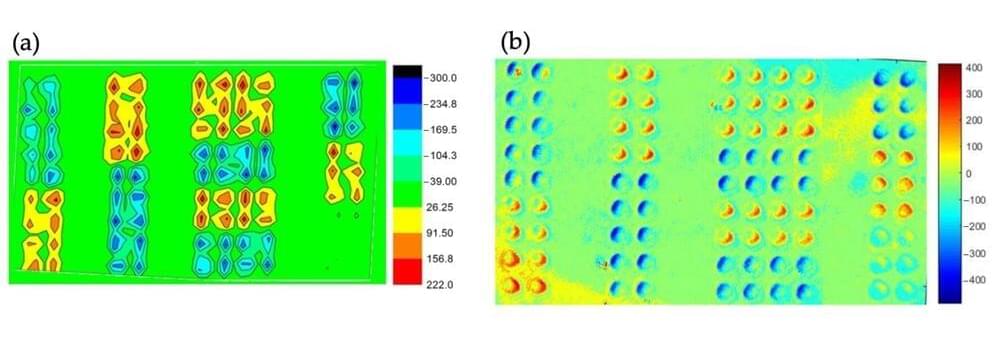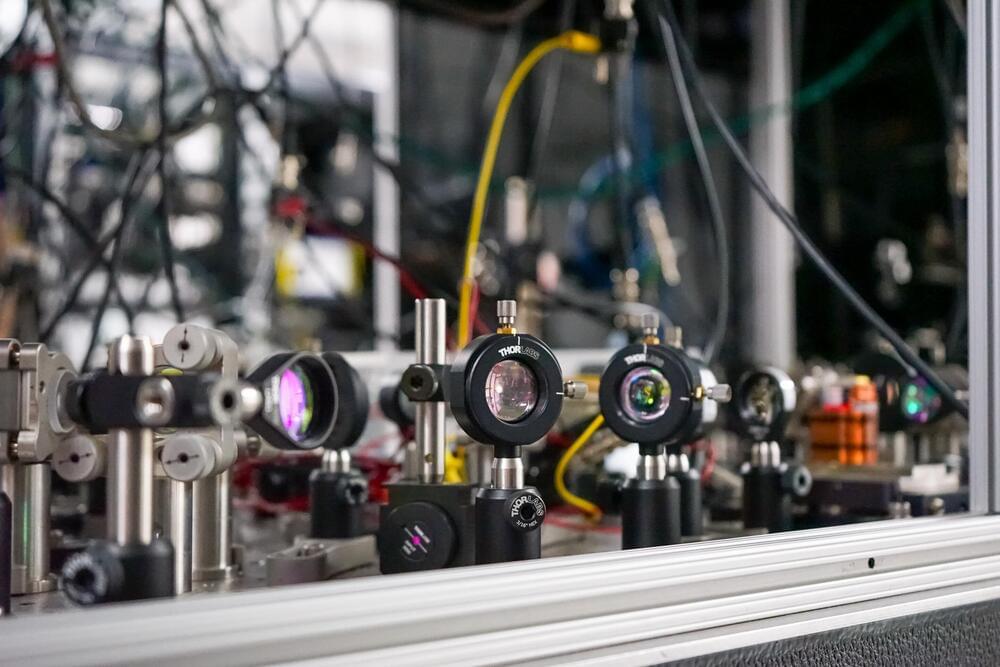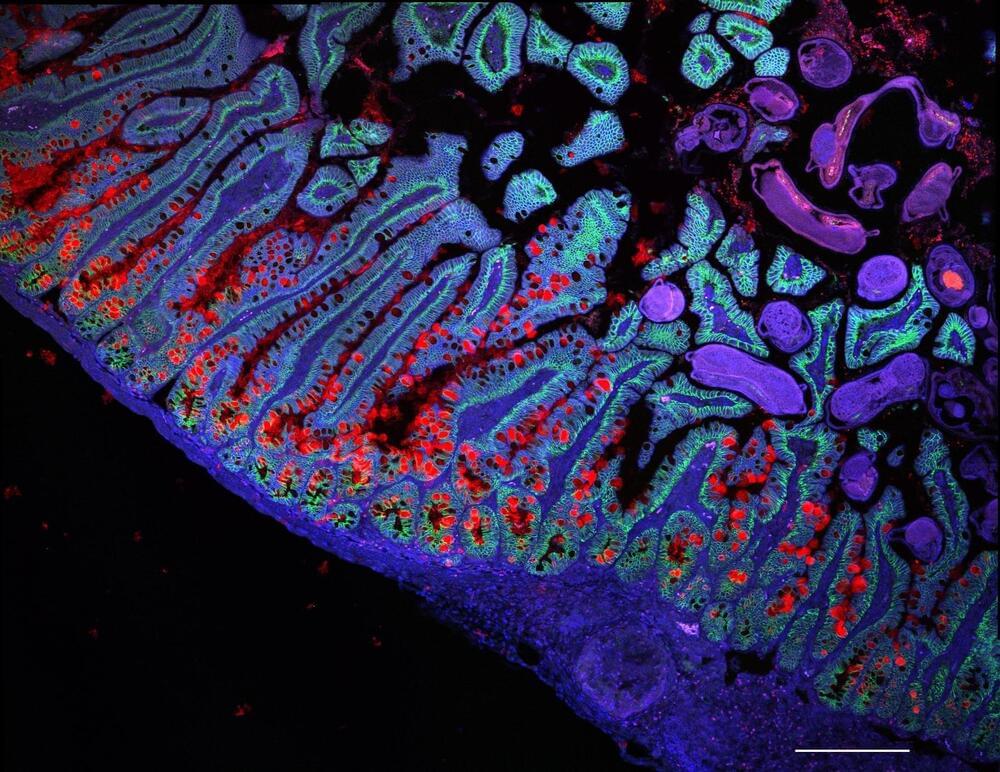Huge datasets containing hundreds of millions of posts were discovered online.



The quarks that make up the nuclei of all atoms around us are known to “mix”: the different types of quark occasionally change into one another. The amounts in which these processes happen are not very well known, though—and the theoretical values don’t even add up to 100%. UvA-IoP physicist Jordy de Vries and colleagues from Los Alamos, Seattle, and Bern have now published work that takes a step towards solving these mysteries.
All good things come in threes. The Standard Model of particle physics takes this motto to heart: it contains three so-called generations of elementary particles. Take the quarks as an example. In addition to the pair of quark types known as “up” and “down,” which make up the core of atomic nuclei, there exist two additional quark pairs: “charm” and “strange,” as well as “top” and “bottom.” Together, these six types of quarks are known as the six quark flavors.
The Standard Model predicts that one quark flavor can transmute into another, a phenomenon called quark mixing, but the model does not predict how often different transmutations happen. In fact, the current state-of-the-art analysis indicates that something is afoot: the probabilities of all mixings do not add up to 100%. What is going on? Could this be a signal of new physics outside of the Standard Model?

In today’s world, the fight against counterfeiting is more critical than ever. Counterfeiting affects about 3% of global trade, posing significant risks to the economy and public safety. From fake pharmaceuticals to counterfeit currency, the need for secure and reliable authentication methods is paramount. Authentication labels are commonly used—such as holograms on bank notes and passports—but there is always a need for new unfalsifiable technologies.
This is where research recently published in Applied Sciences comes into play. Led by a team of scientists from Oxford University, the University of Southampton, and Diamond Light Source, the UK’s national synchrotron, the work focuses on developing a new technology for writing and reading covert information on authentication labels.
This technology leverages the unique properties of Ge2Sb2Te5 thin films, which can change their structure when exposed to specific types of laser light. By using circularly or linearly polarized laser light, the researchers can encode hidden information in these thin films. This information can then be revealed using a simple reading device, making the technology both advanced and accessible.

Researchers have shown that optical spring tracking is a promising way to improve the signal clarity of gravitational-wave detectors. The advance could one day allow scientists to see farther into the universe and provide more information about how black holes and neutron stars behave as they merge.
Large-scale interferometers such as the Advanced Laser Interferometer Gravitational-Wave Observatory (aLIGO) detect subtle distortions in spacetime, known as gravitational waves, generated by distant cosmic events. By allowing scientists to study phenomena that do not emit light, gravitational wave measurements have opened a new window for understanding extreme astrophysical events, the nature of gravity and the origins of the universe.
“Quantum noise has become a limiting noise source when measuring gravitational waves,” said Scott M. Aronson, a member of the research team from Louisiana State University. “By tuning the system to respond at a desired frequency, we show that you can reduce this noise by using an optical spring to track a signal coming from a compact binary system. In the future, this binary system could be two black holes orbiting each other—within our galaxy or beyond.”

New research from the Human Cell Atlas offers insights into cell development, disease mechanisms, and genetic influences, enhancing our understanding of human biology and health.
The Human Cell Atlas (HCA) consortium has made significant progress in its mission to better understand the cells of the human body in health and disease, with a recent publication of a Collection of more than 40 peer-reviewed papers in Nature and other Nature Portfolio journals.
The Collection showcases a range of large-scale datasets, artificial intelligence algorithms, and biomedical discoveries from the HCA that are enhancing our understanding of the human body. The studies reveal insights into how the placenta and skeleton form, changes during brain maturation, new gut and vascular cell states, lung responses to COVID-19, and the effects of genetic variation on disease, among others.
Physicists are getting closer to controlling single-molecule chemical reactions – could this shape the future of pharmaceutical research?
A groundbreaking study demonstrates control over atomic-level matter through nanotechnology. By leveraging the precision of scanning tunneling microscopy, researchers have shown how competing chemical reaction outcomes can be influenced by manipulating energy levels. This advancement allows for targeted reactions, such as those needed for drug synthesis, while reducing unwanted byproducts.
Controlling matter at the atomic level.

Researchers have developed an innovative optical technology capable of enhancing data transmission by utilizing spatial-frequency patching metasurfaces.
This approach allows light beams to carry significantly more data across multiple independent channels, overcoming traditional optical beam limitations. Its applications extend to secure communication, encryption, and advanced optical systems.
Revolutionary optical technology for data transmission.

French physicist Louis de Broglie’s pilot wave theory proposed that quantum particles are directed by a guiding wave. Although de Broglie later renounced his theory due to its complexity and abstractness, the concept was revived by David Bohm and remains a topic of ongoing scientific exploration and debate.
Celebrating a Century of Quantum Discovery
Last week marked the 100-year anniversary of French physicist Louis de Broglie presenting his doctoral thesis, a groundbreaking work that earned him a Nobel prize for “his discovery of the wave nature of electrons.” His discovery became a cornerstone of quantum mechanics and gave rise to his renowned “pilot wave” theory—an alternative framework for understanding the quantum world. Yet, despite its significance, de Broglie later rejected his own theory. Why did he abandon it?

New findings, published in the journal Ecology, describe a previously undocumented behaviour of Ethiopian wolves (Canis simensis). For the first time, these have been reported to feed on the nectar of Ethiopian red hot poker flowers (Kniphofia foliosa) – the first large carnivore species ever to be documented feeding on nectar. In doing so, the wolves may act as pollinators, perhaps the first known plant-pollinator interaction involving a large carnivore.
The study was carried out by researchers at the Ethiopian Wolf Conservation Programme (EWCP), a partnership between the Wildlife Conservation Research Unit (WildCRU) at the University of Oxford, the Ethiopian Wildlife Conservation Authority (EWCA), and Dinkenesh Ethiopia. They observed that some individual wolves would visit as many as 30 blooms in a single trip, with multiple wolves from different packs exploiting this resource. There was also some evidence of social learning, with juveniles being brought to the flower fields along with adults.

The find intrigued scientists, including my colleagues and I. Upon closer investigation, we realised the scar was created by a ferocious tornado that no-one knew had occurred. We outline the findings in new research published today.
Tornadoes are a known threat in the United States and elsewhere. But they also happen in Australia.
Without the power of technology, this remarkable example of nature’s ferocity would have gone unnoticed. It’s important to study the tornado’s aftermath to help us predict and prepare for the next big twister.